This post may contain affiliate links. Please read my privacy policy.
Ramen Eggs - this recipe shows you how to make delicious, runny, and gooey Japanese eggs for ramen perfectly. Super easy, just marinate and boil!
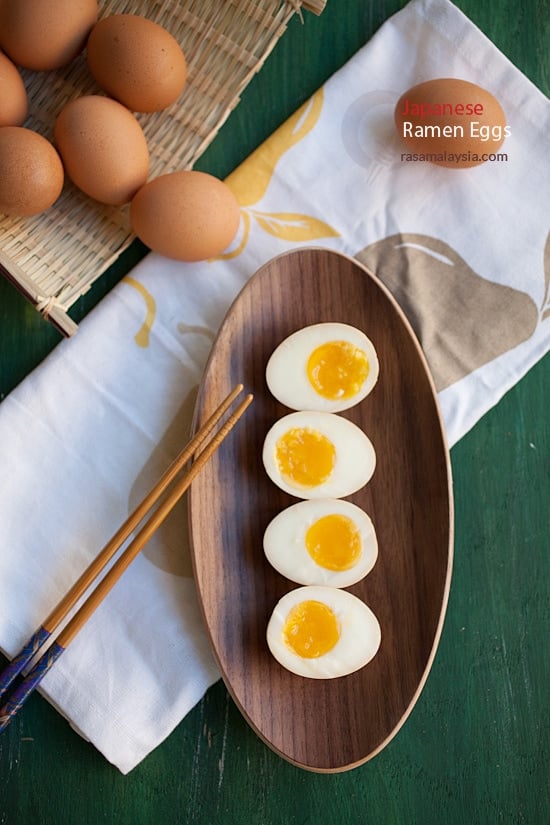
What Are Ramen Eggs
Japanese ramen eggs…you know those perfectly boiled and marinated eggs with a nicely set egg white but gooey, soft egg yolk that is so creamy and silky that you just can’t get enough?
Yes, they are what I call ramen eggs, because only with Japanese ramen, we can get boiled eggs so refined and so utterly delicious.
I love ramen eggs or ajitsuke tamago, which in Japanese (means “flavored eggs”).
Ingredients for Ramen Soft Boiled Egg
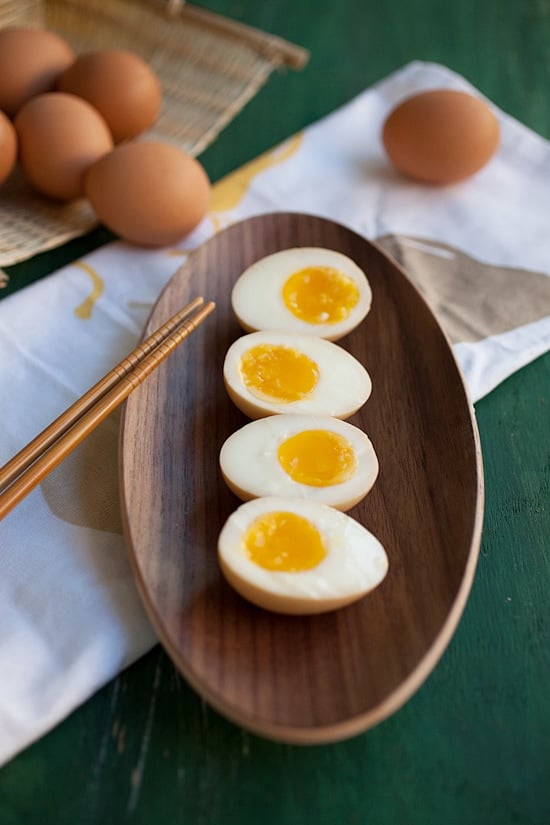
- Baking soda
- Eggs
- Japanese tsuyu or soup base
- Cooking sake
- Mirin
- Soy sauce
See the recipe card for full information on ingredients.
Helpful Tips For Home Cooks
- Timing is everything, and you have to be very precise when it comes to the cooking time.
- Just one minute could make the eggs under cooked with unset egg white, or overcooked as the egg yolk will be completely set.
- The cooking time also depends on the temperature of the eggs, whether they are straight out of the fridge or at room temperature. My recipe uses room temperature eggs
- Another challenging part of this recipe is the freshness of the eggs as the egg shells might be hard to peel and hence you won’t have pretty eggs if the shells don’t come off easily. For that, I used baking soda while boiling the eggs to make the peeling easier.
- As simple as they look, they do take some time to make. After you boil the eggs, you marinate the egg in the soy sauce mixture overnight or best 24 hours so the eggs taste absolutely flavorful.
Frequently Asked Questions
You can store the eggs, unopened and sealed, in the fridge for up to 3 days. Throw away the marinade after 12 hours. Reheat in ramen soup to serve.
This recipe has 83 calories per serving.
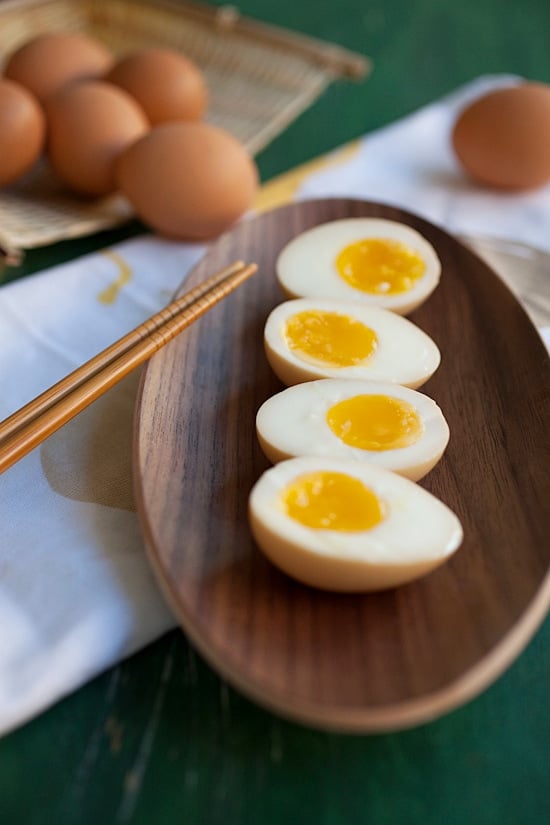
What To Serve With Ramen Eggs
Serve these eggs with Instant Pot Ramen! For a wholesome meal and easy weeknight dinner, I recommend the following recipes.
I hope you enjoy this post as much as I do. If you try my recipe, please leave a comment and consider giving it a 5-star rating. For more easy and delicious recipes, explore my Recipe Index, and stay updated by subscribing to my newsletter and following me on Facebook, Pinterest, and Instagram for new updates.
Other Recipes You Might Like
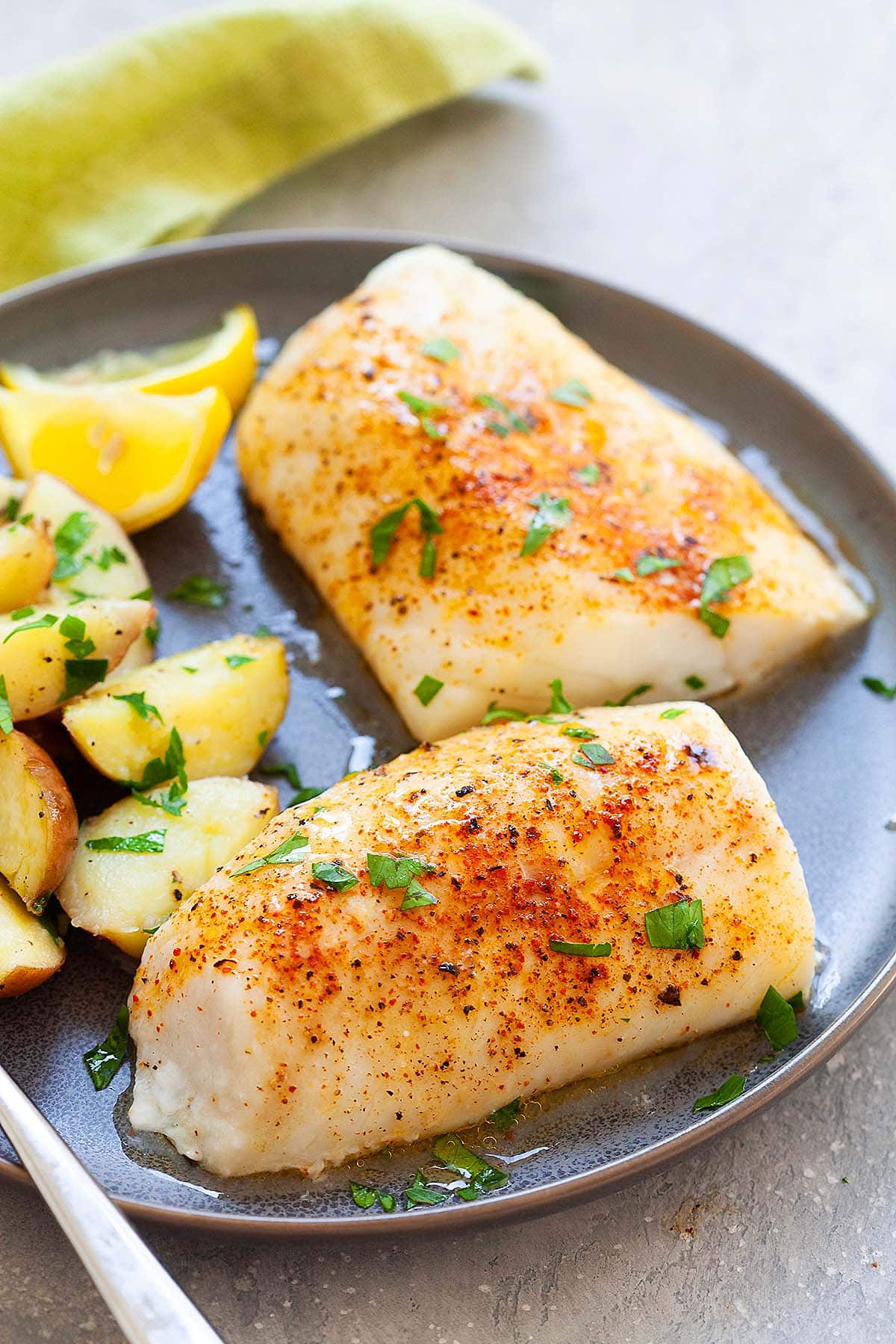
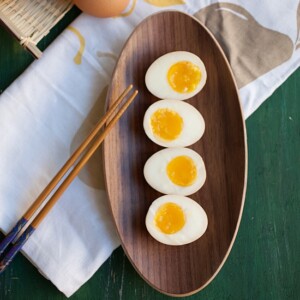
Japanese Ramen Egg
Ingredients
- water , for boiling
- 1 tablespoon baking soda
- 6 eggs , at room temperature
Seasoning Sauce:
- 50 ml Japanese tsuyu , or soup base such as Mizkan Bonito-Flavored Soup Base
- 50 ml cooking sake
- 25 ml soy sauce , or Tamari soy sauce
- 25 ml mirin
Instructions
- Combine the water and baking soda in a pot and bring it to a boil. The water level should be deep enough to cover all the eggs. Once the water is boiling, add the eggs and cook for 7 minutes.
- In a separate pan, combine all the ingredients for the Seasoning Sauce. Bring the sauce to a boil, then remove it from the heat and let it cool.
- When the eggs are done cooking, plunge them into ice water and let them sit for 5 minutes. Carefully peel off the shells while the eggs are still in the water, ensuring you remove the membrane covering the egg white.
- In a container or bag, add the seasoning sauce and the eggs. Gently rotate the eggs to ensure they’re evenly coated in the sauce, then let them stand overnight or for 1 to 2 days in the fridge. When ready to serve, slice the eggs in half and enjoy them with ramen or as a snack.
Notes
Nutrition
Nutrition information is automatically calculated, so should only be used as an approximation.
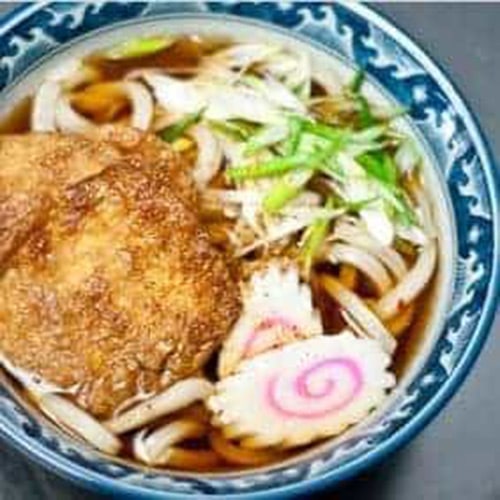
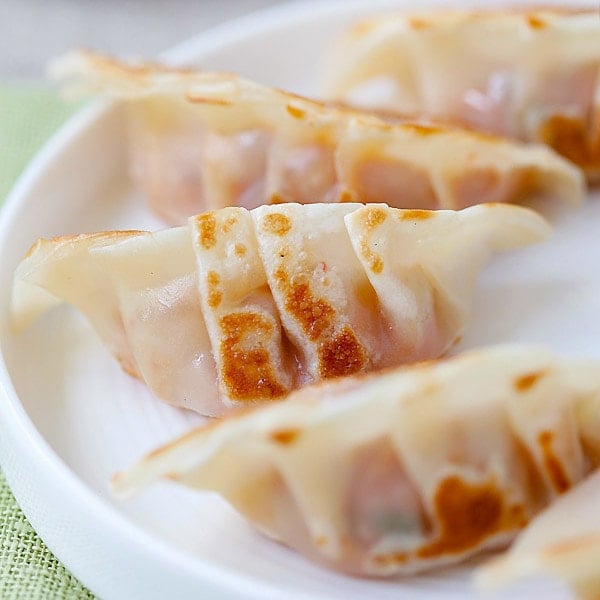
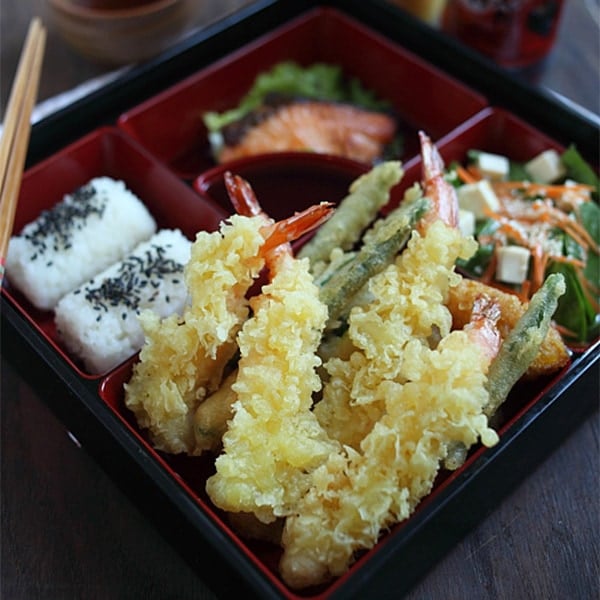
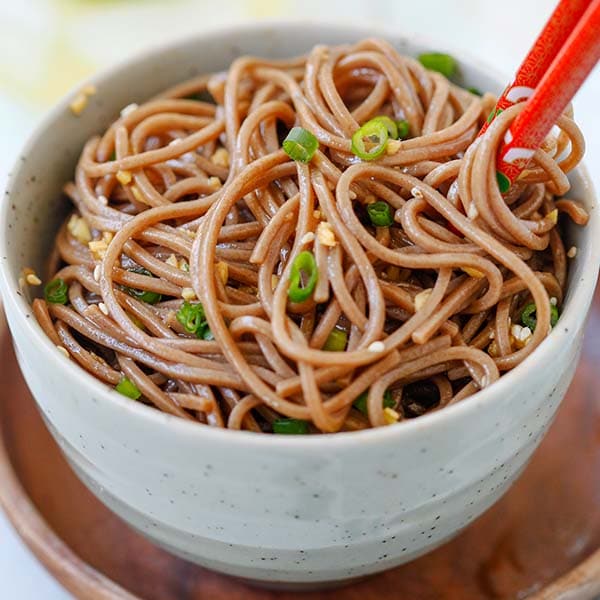






Thanks for the recipe. It worked like a dream. The eggs did look pretty and were easy to peel when I added the baking soda to the boiling water.
Hi Maddie thanks for trying the ramen eggs recipe. :)
I make my own soup stocks but you use a lot of bottled concentrates. Is there a way that I can make this with out the soup base concentrate? I really want to try this for ramen and possibly bento boxes as a change from regular boiled eggs.
Of course you can make all your stuff from scratch.
What egg sizes do you use for this recipe? If I am not mistaken, different sizes will yield different results under the same cooking conditions. Please advise.
Thank you.
Yes, correct. My eggs are from the US stores…large.
I’m a little confused. Aren’t cooking sake and Mirin basically the same?
Sake is not the same as mirin. Mirin is sweet cooking wine made from glutinous rice while sake is made from rice, or rice wine.
I thought you can make mirin with a ratio of sake and sugar. I think it was 3:1 but would have to look it up to verify. I do use a non-alcoholic one, same brand, if on sale.
i love these and i’d love to try making my own!
Ahh I just saw you have the tea leaf egg recipe posted! Silly me! I have a few more request that I might post later though ^_^
I spent a semester studying in China and fell in love with tea eggs! From what I can tell they are hard-boiled eggs that are soaked in maybe salted tea? They are one of my favorites! Are you familiar with these eggs? Do you know how to make them? I would be so excited to have the recipe!
Thanks for reading my comment! :]
This is the kind of recipe that works really great in a sous vide. There are homemade sous vide setups … mostly all it needs is a good thermostat. They sell accurate thermostats for keeping reptiles or for bucket heaters. But, I bought a sous vide, and it is a very nice piece of kitchen equipment (mine is a Sous Vide Supreme, but there are other brands). Anyway, for silky eggs, you just put the eggs in a bag (and there can be water in the bag) and toss it into the Sous Vide at the desired temperature. The amount of time doesn’t matter so much.
I’ve never heard of this recipe though, so now I’ll have to try it!
I know the Sous Vide Supreme machine…and now I might have to buy it. :)
Thanks for sharing, I wonder 7 mins of cooking the eggs will it become hard boiled eggs as we often cook our eggs for 5 mins over the gas stove and stand for 5 mins. Hard boiled eggs is ready to use.
You can make them into smoked eggs instead dropping them into your sauce or Chinese stew sauce over night in the fridge.
No, exactly 7 minutes (room temperature eggs) and this is what I got…as pictured in my photos.
I buy jumbo eggs(cheaper) poke a hole in the air sac end, and full boil for 120 seconds and let sit for 15 min in the hot water. In addition I never use eggs fresher than 7 days from the store ( makes them peal without damaging the white). I don’t know anybody that has chickens, or even anybody that knows anybody that has them, so the store is my go to.
How can our times be so different? I don’t doubt your times, but we must have some reason for the disparity. After 7 minutes I get the sulfur ring. Well it really matters not, just means there are many ways to get a perfect egg, I suppose.
I enjoy your contributions to my cuisine. Keep it up!
My recipe is from a Japanese website and it’s the only one that works for me actually. You boiled for two minutes, and sit in the hot water for 15 minutes. That’s a total of 17 minutes. I boiled mine for 7 minutes and removed immediately and ice water bath. There are probably many ways to make this…as long as it works. :)
One possible explanation could be that you may live at different heights above sea level. Due to decreasing atmospheric pressure water boils at a lower temperature higher up, so eggs take longer to cook. I live in Switzerland, and whenever we wanted to make soft boiled eggs during our skiing holidays in the mountains (around 1000 metres higher than my home town), we would have to let them boil about 2 minutes longer to get to the same result.
I’m excited to try these! I recently made the soy sauce braised eggs because they were the closest thing I could find to a recipe for eggs like I’d find in a ramen shop. After moving to Kansas from New York City, I’ve had trouble finding food like this in restaurants, so I’ve relied on your site and similar ones to make the recipes myself!